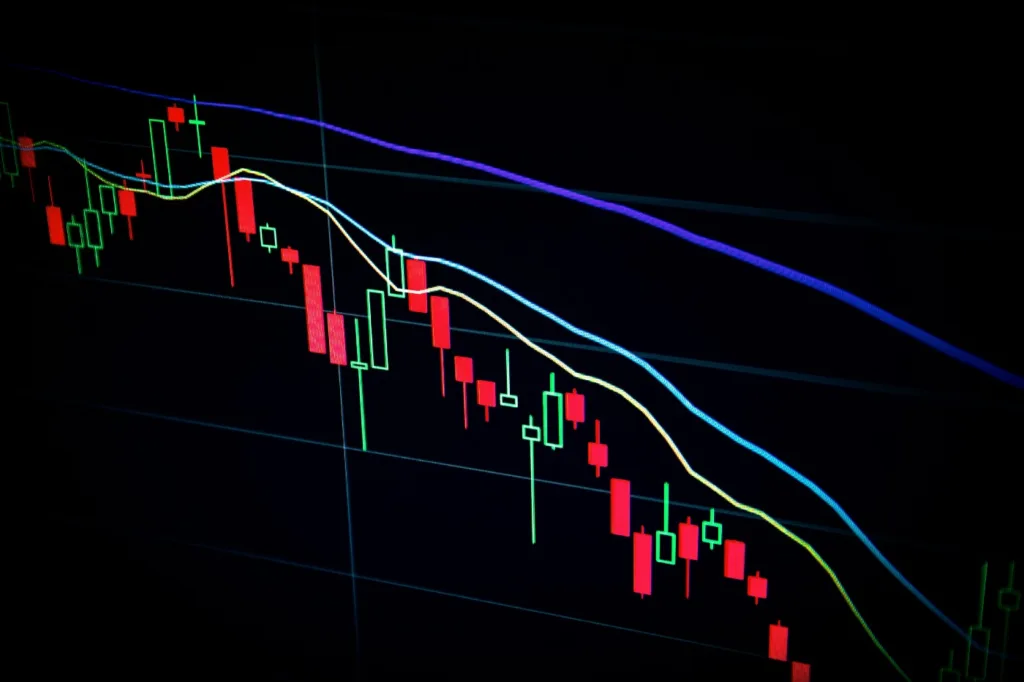Bear market investing is easier said than done. As someone who is still trying to build his portfolio, I don’t worry, let me rephrase, I feel happy that stock prices are sliced.
That’s because I add money every month whenever I receive a paycheck so the longer the prices remain suppressed the more shares I can buy.
Don’t get me wrong. I don’t mean anything bad to anyone who depends on their portfolio to live. My only point is that if you are still young, healthy, and have a job.
Then, times like this might excite you and not scare you as long as you do what is within your control. And that is buying the best companies of today.

What you'll learn:
⓵ Bear markets make investors feel like the world is ending
I’ve seen experts talk about this bear market like it’s the end of the world. I’ve literally read comments from professionals like wealth/fund managers that went that far and said that even the stock market would cease to exist in 5–10 years.
I know there are certain macroeconomic factors affecting it. But to say that it’s the end of the stock market seems quite stretched to me. But what do I know about bear market investing anw?
What I do know is that I can’t do much about it.
So, what am I gonna do?
Go to cash? No. Why? Because cash is paper. And paper is worth nothing. Unless you put it to good use. Of course, I can go to cash and hope that I can time correctly when the bull market will begin. But I’m not good at that.
And frankly, even the best ones out there have trouble with timing the market. Yes, even those with high brainpower, skills, and expertise still struggle. And I’m no Jim Simons either.
⓶ Index investing feels safer during turmoil
Go to index investing? No.
Why? Because indexing is saying that I don’t know how to choose so I’ll just buy everything. This works for some. and that’s ok. But I’m here to learn how to do it myself.
If you think that indexing is less risky because you simply hold more companies, then I would urge you to study a different method and only invest a small percentage of your capital.
⓷ Start small
Start by buying 1–2 companies, starting to learn more about it, follow the news, read the reports, have some expectations of your own, see what you like and what you don’t like, come to your own conclusions. At this time making or losing money won’t be your main concern.

So instead of buying more of what you don’t understand (companies) start by tipping your toes. So, you manage your risk by investing less of your capital not by buying more companies.
Opportunities come and go, there’s no need to rush into it if you don’t feel ready. At the end of the day, it’s your own money.
I understand that a lot of people are retired and do not add fresh cash to their portfolios. And I understand it must be hard to see it shrink. But am I the only one who’s still trying to build his portfolio? Probably not.
⓸ Focus on the best companies
So, at this point, the only real question that I can ask myself is this: “Am I buying the best companies at a fair price?” Everything else is something out of my control and thus, pure noise.
By making sure we pick the best businesses, we do our part by doing what is within our control. Of course, these businesses might not be the best in 6–12 months’ time. I’m not saying just buy, hold, and pray.
⓹ Stick to your strategy
Also, this approach is not momentum trading. Momentum trading involves getting in and out when the price is right. I do not change my approach or the companies in my portfolio during this downturn.
Yes, sometimes I change my allocation to put more weight into the better ones that I already owned (or add a new one that the price got to a fair level). But that is it. I wouldn’t switch to index, value, or any other way of investing.
Yes, I might play with options and other kinds of bets but that is just some sprinkles on the cake. Not the cake itself.
Some concerns about inflation and rising interest rates are all valid. But that’s why we pick companies that are growing revenues at a high rate. This means their business is booming. Even if it slows down a bit they are still growing fast.
That is also why we pick companies with high gross margins. And with high NRRs (Net Retention Rate). Because these companies have the pricing power and thus can increase their prices if and when needed without harming sales.
Even Buffett thought that this was the single most important metric to look at when assessing a business.
Final thoughts
To conclude, bear market investing is not for everyone. But those who do stay invested for the long term, seem to benefit from opportunities, while those who stay out of the market completely seem to have a lower alpha. As always, do what seems reasonable to you. It’s your own portfolio after all.
More from thoughts.money
An Open Letter to My Future Son & Daughter
Stock Market Investing: The Greatest Game of All?
From Speculation to Success: Tips from “The Intelligent Investor”



